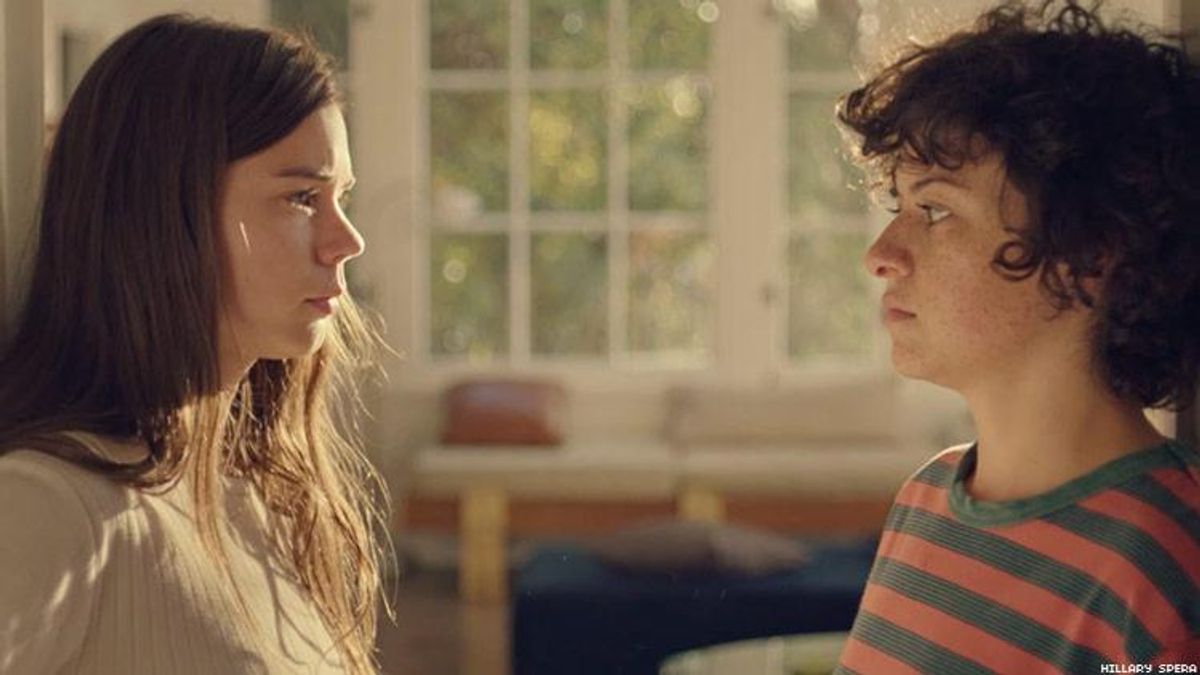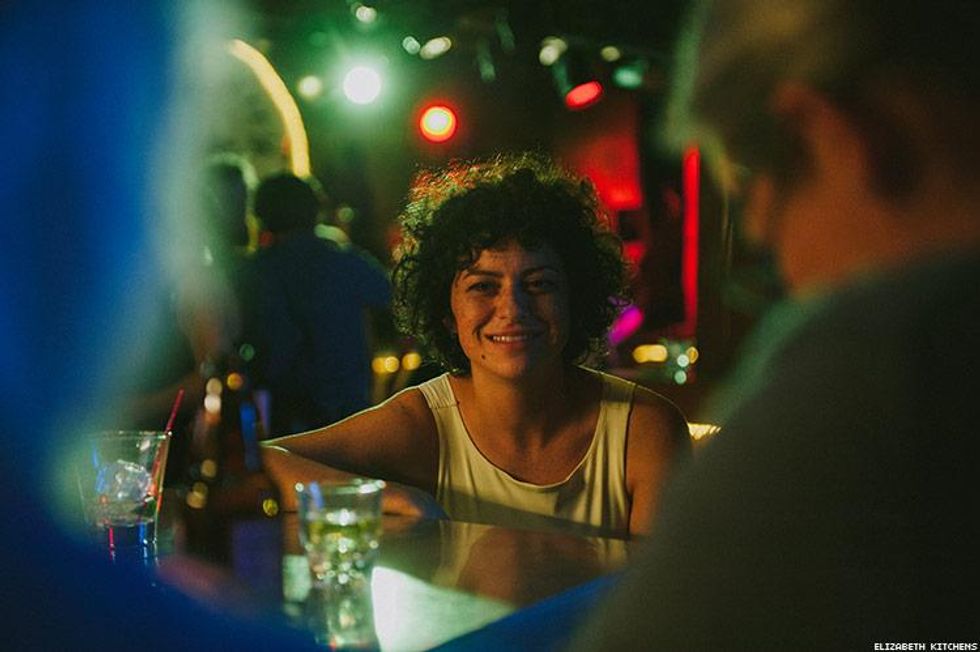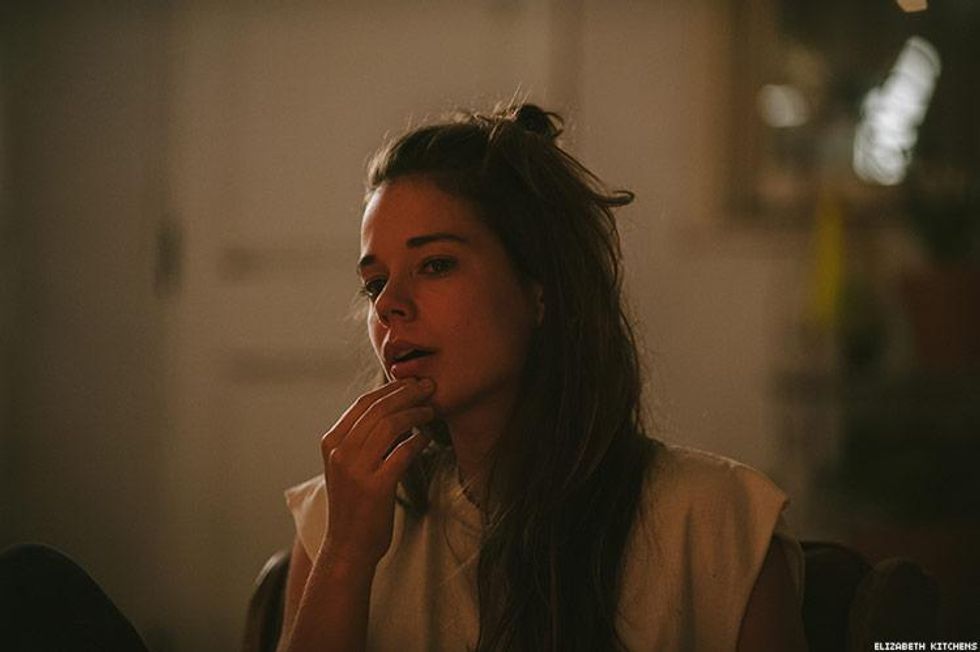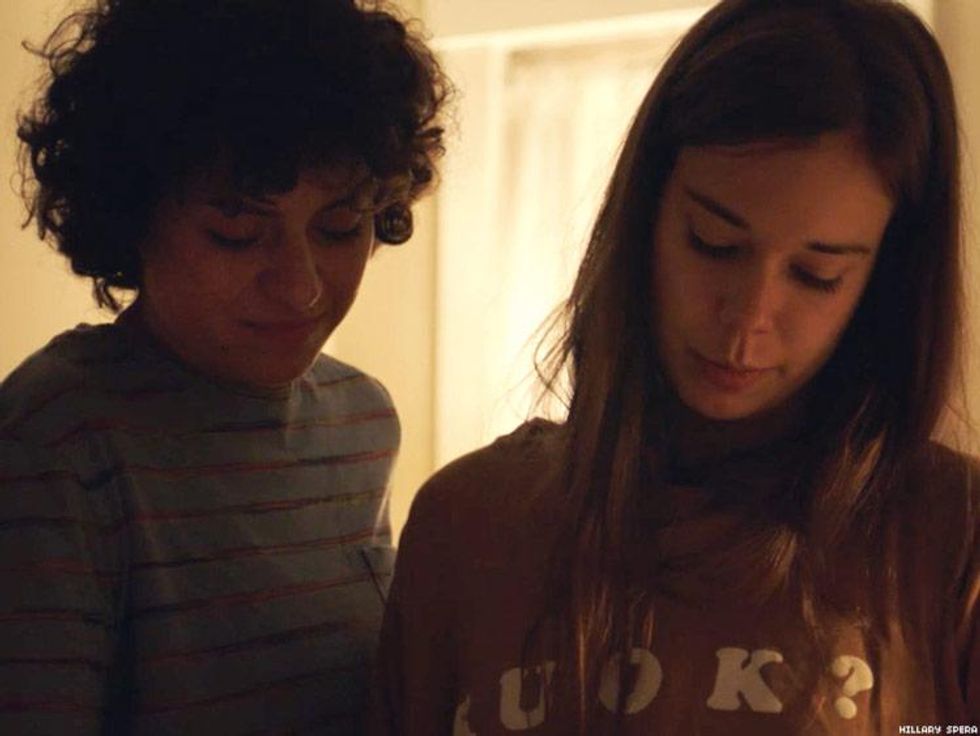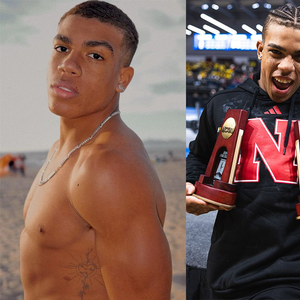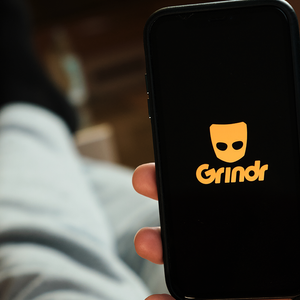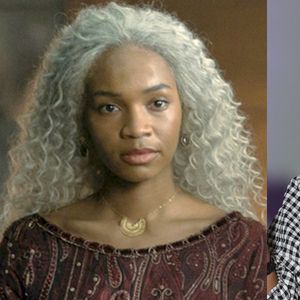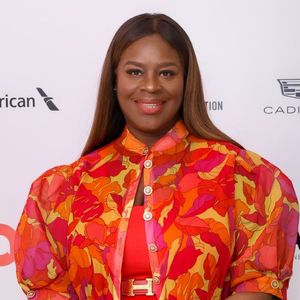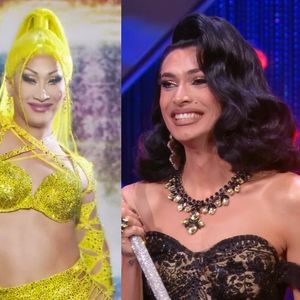A pair of strangers meets, acts on instant chemistry, and embarks on an experiment to live out a relationship in 24 hours, staying awake the entire time and having sex on the hour while promising to expose the deepest parts of themselves... At a time when swiping right and putting one's best self forward on social media permeate dating culture, the inauthenticity that ensues when the young women at the heart of this particular romantic study discover they're completely out of touch with their true selves and incapable of opening up is the central exploration of the very modern queer film Duck Butter.
Directed by Miguel Arteta (Beatriz at Dinner, The Good Girl) and with a script from the director and one of its stars, Alia Shawkat (Transparent, Search Party), Duck Butter boils what was originally conceived as a year and a half relationship between an opposite-sex couple down to a single day hook-up that explores the rise and rapid flame-out of infatuation and big ideas.
"It's a meditation on modern relationships but it's still kind of like a timeless thing of 'Do you really know how to share yourself with somebody?'" Shawkat tells The Advocate. "We have ideas of who we really are, our best qualities, and being open with somebody. Then, when someone actually shows you maybe not their most flattering side, are you going to be able to accept it or do you run away because you don't want to show yours?"
The film -- its script a structured outline that allowed its actors to improvise dialogue -- germinated for several years after Arteta directed Shawkat, already a beloved star from Arrested Development, in the 2011 indie comedy Cedar Rapids. The two had been discussing past relationships when Arteta was inspired to ask her to collaborate on a script.

Alia Shawkat
"We started talking about terrible relationships we'd been in and how these people we had been with were obviously so wrong for us but how it still hurt so much and how we tried to be somebody else for somebody for a while," Shawkat says. "You know -- someone who inspires you to live your life a different way and you really think you can find yourself in them."
That's where the story of Naima, a struggling actress oblivious to her shortcomings who has just bombed out of a Duplass brothers film, and Sergio (Laia Costa) a free-spirited artist with no particular medium or talent, comes in. The narrative was originally intended to span an 18-month relationship that begins with the 24-hour experiment, but feedback from friends and colleagues led Shawkat and Arteta to scrap the drawn-out section of the romance and focus on the lifecycle of a relationship in a single day.
But the collapsing of time wasn't the only major change. When Costa, who was originally cast in a supporting role in Duck Butter and who starred in the acclaimed German film Victoria -- a heist movie shot in one long take (a single shot) -- learned that the 24-hour pact would be filmed in a single day, she said she wanted to be there in any way possible to watch them shoot it.
"That's the most 'Sergio' person we've met," Shawkat says she and Arteta thought of Costa's eagerness and curiosity. Her personality aligned more closely with the script's male character than any of the men they'd auditioned, so Costa became the other lead. And the movie, originally written as a straight love story, suddenly became a deeply of-the-moment queer film.

Laia Costa
In a 2017 interview with Out, Shawkat spoke with the media for the first time about being bisexual, and while happenstance, not her sexuality, informed the film's becoming about an affair between women, she says that because she was dating a woman at the time they shot Duck Butter, it helped inform certain elements of the performance. Still, a massive piece of Duck Butter's appeal is its innate queerness that exists because of who the characters are independent of societal pressures, as has been the focus of so many films in the LGBT canon.
"Not to make it sound blase. It is obviously about lesbians, but it's not about their coming out story. It's not about how the world relates to them differently, to them being gay, or to any struggles they've had to go through being gay, which was important for me to show," Shawkat says of her film, which in relation to excellent recent queer movies like Carol, Love, Simon, Call Me By Your Name, and Disobedience, whose stories turn on some level of pressure from outside forces, exists in a space all its own.
"Obviously those are important stories. In my life and in my generation I haven't seen a lot of stories where we don't reference it at all. In a way I find that to be as powerful," she says. '"Yeah, we're gay and so what? We're women, and so what?' Instead of that being the crux of the plot."
For Costa, a native of Spain who played a lesbian in the television show Cites, Duck Butter appealed to her on several levels. While the idea of staying awake and shooting the 24-hour segment in as close to real-time as possible was the first draw for Costa, she was intrigued by Sergio's very Californian identity as an "artist" and her complete lack of self-awareness while purporting to be enlightened -- a trait so often spurred by attempts to impress others on social media, although Sergio likely very earnestly eschews social media.
"I wanted her to be this kind of young person who does a lot of artistic things but she's not really good at any of them," Costa says of Sergio. "You don't know if she's really talented or if she just wants to get attention. At the same time, she has this way of life [her apparent free spirit] that's maybe a defense."

Bucking the current trend of meeting possible paramours on dating apps that often urge swift judgment based on visual stimuli and a few quips, Duck Butter's couple meets in real life at a queer bar where Sergio performs a song off-pitch but with loads of swagger. The two hang out and hook-up before Sergio suggests they spend the next 24 hours together baring their souls and having an orgasm an hour. The pact is intended to sidestep the surface pleasantries of the incipient stages of dating, but rather, it throws them headlong into feigning their best selves through manic exhaustion until they erupt.
"The thing is that when you can not connect with someone else -- usually -- maybe always, it's because of yourself. But nowadays, because of our culture and our society it's very easy to put the guilt to someone else. We don't like to take responsibility for ourselves," Costa says. "With connections, if you have all this noise in your mind, in your body, in your soul, you can not really connect with people. That's what happens with them [Naima and Sergio]. They can't connect with the other one because they are too busy dealing with their own shit."
"Duck Butter," a term for "smegma" in the folds of the skin -- Naima explains to Sergio as she recalls a past sexual encounter with a man who insulted her natural excretions -- acts as a metaphor for their acrid, free-fall of a "relationship," but the movie is ultimately hopeful. Its conceit of the 24-hour experiment in which Shawkat, Costa, Arteta, and a skeleton crew stayed awake before, during, and after the shoot, napping only for 20 minutes at a break in the action where they switch sets, lends to a result brimming with the immediacy and freedom of early John Waters's movies in which the charge from making something completely new drives the project. Even as Naima's and Sergio's masks are unveiled with increasing schadenfreude, the film is alive with possibility spurred by the all-in commitment of young love and the thrill of a new kind of queer cinema.
Although Duck Butter peels back the facade of new love to expose the difficulty of real connection, Shawkat believes in the possibility of love in a way that can't be extricated from her art.
"I want to make films about love. It's the only thing that kind of interests me. There are lots of other movies out there but I want to make movies about love or the idea of it or questioning it," Shawkat says. "[I'm] definitely hopeful. I believe it's out there in some form or another whether I've seen that form or not. I don't know. I'm still going to keep looking for it."
